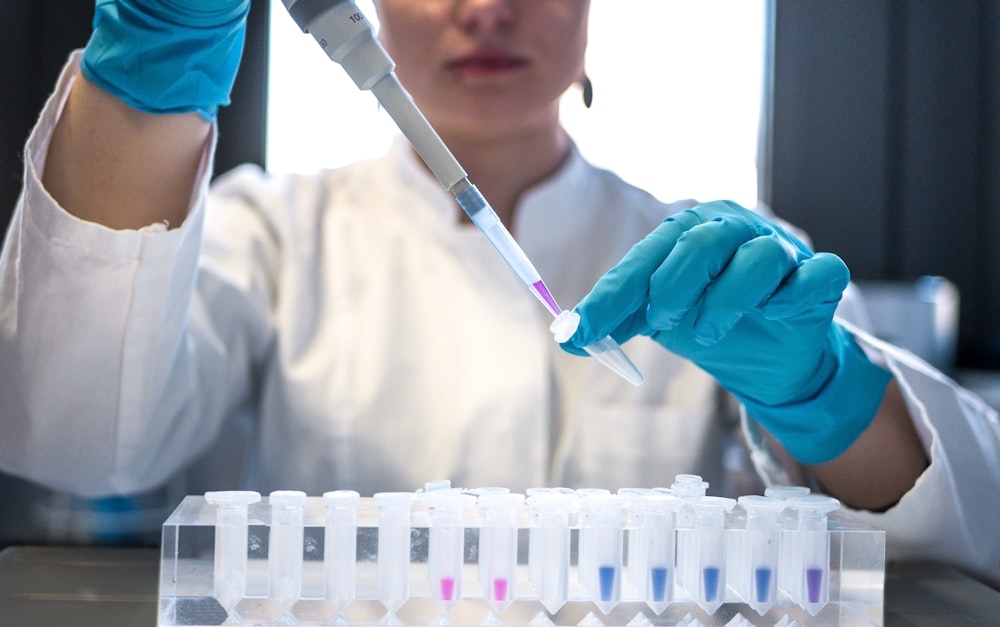- The overview of the IGCSE Science, and specific tips on how you can excel in your IGCSE Science with IGCSE Science Tuition!
The Cambridge IGCSE offers three types of Sciences, Combined Science, Coordinated Science, and Pure Science. This article will dive into these three types of Sciences and discuss their differences and how students should prepare for their IGCSE science examinations.
The three types of sciences offered by IGCSE Cambridge differ mainly in content and assessment. Combined Science syllabus coverage is much condensed than the Coordinated Science and Pure Science. Coordinated Science is also a combination of Biology, Chemistry, and Physics but its syllabus coverage is much more in-depth than Combined Science. Pure Science is to take Biology, Chemistry, and Physics themselves as a subject.
Combined Science (0653)
The IGCSE combined science is a combination of three sciences, Biology, Chemistry, and Physics. Students will learn in brief about these three sciences.
Content Overview for Combined Science
Biology
- Characteristics of living organisms
- Cells
- Biological molecules
- Enzymes
- Plant Nutrition
- Animal nutrition
- Transport
- Gas exchange and respiration
- Coordination and response
- Reproduction
- Organisms and their environment
- Human influences on ecosystems
Chemistry
- The particulate nature of matter
- Experimental techniques
- Atoms, elements, and compounds
- Stoichiometry
- Electricity and chemistry
- Energy changes in chemical reactions
- Chemical reactions
- Acids, bases, and salts
- The Periodic Table
- Metals
- Air and water
- Organic chemistry
Physics
- Motion
- Work, energy, and power
- Thermal physics
- Properties of waves, including light and sound
- Electrical quantities
- Electric circuits
Coordinated Science (0654)
Besides offering a wider range of content in Coordinated Science, it also rewards students with a double award qualification, earning two grades. Combined science, on the other hand, only awards students with one qualification and one grade.
Content Overview for Coordinated Science
Biology
- Characteristics of living organisms
- Cells
- Biological molecules
- Enzymes
- Plant Nutrition
- Animal nutrition
- Transport
- Gas exchange and respiration
- Coordination and response
- Reproduction
- Inheritance
- Organisms and their environment
- Human influences on ecosystems
Chemistry
- The particulate nature of matter
- Experimental techniques
- Atoms, elements, and compounds
- Stoichiometry
- Electricity and chemistry
- Energy changes in chemical reactions
- Chemical reactions
- Acids, bases, and salts
- The Periodic Table
- Metals
- Air and water
- Sulfur
- Carbonates
- Organic chemistry
Physics
- Motion
- Work, energy, and power
- Thermal physics
- Properties of waves, including light and sound
- Electricity and magnetism
- Electric circuits
- Electromagnetic effects
- Atomic physics
Pure Sciences
Pure Science is all the Sciences but taken individually. It will be three separate subjects, Biology (0610), Chemistry (0620), and Physics (0625). This will mean the syllabus coverage for each individual subject is wider and more in-depth as compared to the Coordinated Sciences.
How to prepare well for IGCSE Science Exam: 5 Tips
1 – IGCSE Science Tuition
The best way to prepare is to have an experienced tutor guide you through your learning journey. Having a professional tutor can help you to bridge any knowledge gaps and expand your knowledge of the concept. Additionally, IGCSE science tuition offers you a platform to get your science questions and doubts answered. Moreover, having an IGCSE science tuition online brings extra convenience to you. You can take IGCSE science tuition in the comfort of your own home.
At Tutopiya, we offer IGCSE Science tuition for the three types of Sciences. We have trained and experienced tutors for all three sciences and we will match these tutors according to your learning needs and requirements. In addition, new students are entitled to a free trial session with a matched tutor to experience an online science tuition lesson on the Tutopiya platform!
2 – Practice
Practicing may be time-consuming but it helps students to solidify their knowledge and build a strong foundation for the concepts. Practice can come in the form of additional questions, small quizzes, and working on weaker topics. The IGCSE Cambridge Board also uploads past year papers for students to download and practice. Alongside the past year’s papers, they also upload the marker’s report and marking scheme for students to understand what type of answers the board is looking for.
3 – Note common mistakes made by past year’s students
Sometimes, the best way to learn is by learning from mistakes. In this case, you should look out for the common mistakes made by other students. This is so that, you do not make the same mistake and have a chance at scoring higher marks than your peers. Some of these mistakes could be missing out on units, lack of labeling in diagrams, or skipping steps.
Read also: The Ultimate Guide To Revising For IGCSE Maths And Science
All in all, the IGCSE Science is manageable with the right study methods and techniques. In addition, having IGCSE Science tuition can help give you the extra boost that you need for your IGCSE science exam!

Eleen Tan
I am currently a full-time student studying at a local university in Singapore while freelancing as a writer. I enjoy writing and sharing useful education-related tips with my fellow studying peers. During my leisure time, I enjoy doing creative arts and volunteering work. I am passionate about sharing my experience as a student! ☺









